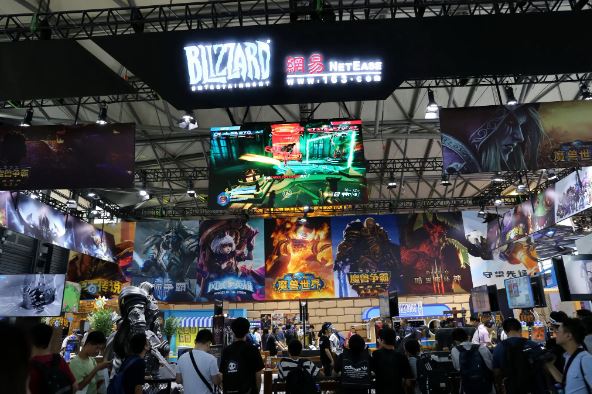NetEase, a Chinese company, announced on Wednesday a significant breakthrough in its partnership with Microsoft’s Blizzard Entertainment, marking the restoration of access to beloved video game titles such as World of Warcraft for Chinese gamers.
The reconciliation comes after more than a year of strained relations between NetEase and Blizzard, during which the distribution partnership between the two companies dissolved amidst contentious renewal negotiations. This rupture sparked widespread dismay among Chinese gamers, who lamented the loss of access to a range of popular titles under Blizzard’s umbrella, including those from its parent company, Activision Blizzard, a prominent U.S. game developer.
In a statement released on Wednesday, NetEase revealed that it had successfully brokered a new deal with Microsoft, which notably acquired Activision Blizzard in a landmark $69 billion deal in October. Alongside reinstating access to Blizzard’s games, the agreement also encompasses the distribution of NetEase’s own titles on Microsoft’s Xbox gaming platform.
William Ding, the CEO of NetEase, expressed enthusiasm for the renewed partnership, emphasizing the foundation of trust and mutual respect upon which it is built. He underscored the significance of serving the gaming community that both companies had cultivated over the years.
The collaboration between NetEase and Blizzard traces back to 2008 when the two companies first entered into a distribution agreement. This partnership proved mutually beneficial, granting NetEase access to globally renowned titles while enabling Blizzard to establish a foothold in China, which has since become the world’s largest video game market. At its peak, titles like World of Warcraft enjoyed immense popularity among Chinese gamers.
However, China’s gaming industry has encountered turbulence in recent years due to government efforts to regulate online gaming and address concerns about its potential negative impact on youth. Beijing has implemented measures aimed at curbing gaming addiction, including restrictions on playtime for minors on school days and weekends.
Last year, regulatory proposals sought to impose spending limits on video game platforms and prohibit minors from tipping video game livestreamers. Although these proposals were met with initial resistance and market volatility, they underscored the complexities of negotiations between Activision and NetEase amidst an evolving regulatory landscape.
While the announcement of the renewed partnership was met with anticipation, Chinese gamers will have to wait several months before gaining access to titles like Warcraft, Overwatch, Diablo, Hearthstone, and StarCraft. Both NetEase and Blizzard cited the need for technical preparations, including data restoration and the establishment of new server facilities. The companies aim to make the first game available by “the summer.”
The news spread rapidly on Weibo, China’s social media platform, eliciting a predominantly negative response from users. Many expressed frustration over the prolonged unavailability of the games, while others criticized Blizzard for what they perceived as disrespect toward Chinese gamers. Some users cautioned against underestimating the resilience of the gaming community, emphasizing that mere reinstatement of the games would not guarantee their immediate embrace by users.

